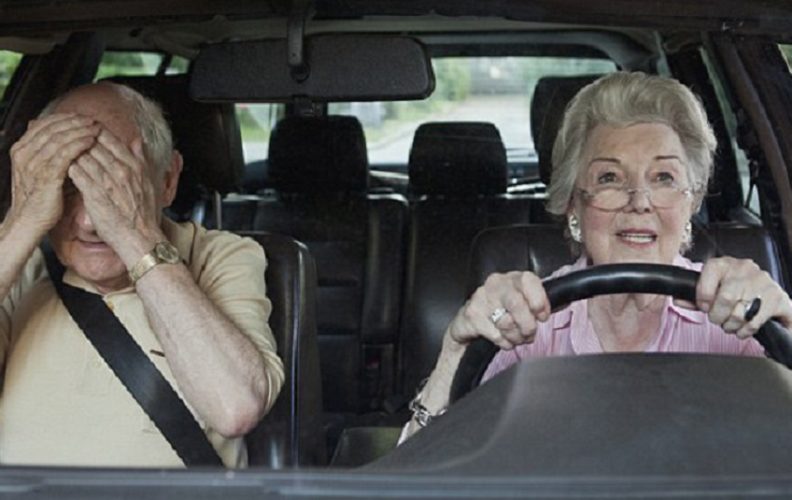
Okay, so your eyesight isn’t as sharp as it once was. Maybe you’re beginning to doubt your reflexes, too, and when driving, perhaps you’re getting fearful of changing lanes on a busy highway, because you don’t recall other motorists ever driving as fast as they do, now. Many of us are reaching this milestone in life, and while it’s true that we’re driving among serial lane changers, speeding, reckless, and distracted drivers, it’s also harder for us to cope, because, well, we’re later-lifers.
This is when an occasional driver safety course is hugely helpful. If we’re not medically impaired – more about that, later – it’s also a great idea to check out AAA Mature Operator courses by contacting your local AAA club for more information. Completing a driver improvement program could make you eligible to receive insurance premium discounts – Driver Improvement Courses.
Laws concerning older drivers vary from state to state, but California is especially tough on older, medically impaired drivers. If you live in California, check out this link; it has the information you will need if you are aged 70-plus to fulfill mandatory DMV requirements – California DMV Senior Driver. Those of you who live in other states can find some information at Claims Journal, but it’s better if you call your DMV for the most up-to-date, thorough information, if you are notified that you must be tested.
Everyday Health offers useful information about driving restrictions that may be an alternative to completely giving up driving
- Avoid driving at night and in bad weather
- Drive only in familiar places
- Drive only within a certain radius of home
- Stay off of expressways (freeways, in California)
- Limit distractions while driving by turning off the radio and other noises, avoiding conversations with people in the car, and not texting or using a cell phone.
Occupational therapists can help you drive more safely, as well. You can find one through the American Occupational Therapy Association. Private driving schools are also offering brush-up lessons for seniors. I found an excellent one by checking Yelp.com in my city. It doesn’t hurt to ask for references, as well.
According to Everyday Health, seniors will want to pay attention to “Stop Signs for Older Drivers” that include some clear indicators that it’s no longer safe to drive:
- Stopping at green lights or when there is no stop sign
- Getting confused by traffic signals
- Running stop signs or red lights
- Having accidents or side-swiping other cars when parking
- Getting lost and calling a family member for directions
- Hearing from friends and acquaintances who are concerned about a senior’s driving
Grannybooster is an ardent fan of seniors. Let’s face it, we are wellsprings of experience, know-how, creativity, and talent, and as long as we take care of our health, we can get the most out of life, even if it means using alternate modes of transportation if we can no longer drive a vehicle.
We want to hear from you, so feel free to share tips, ideas, and resources for seniors with Grannybooster. Email me, Maris Somerville, at [email protected]


Leave a Reply